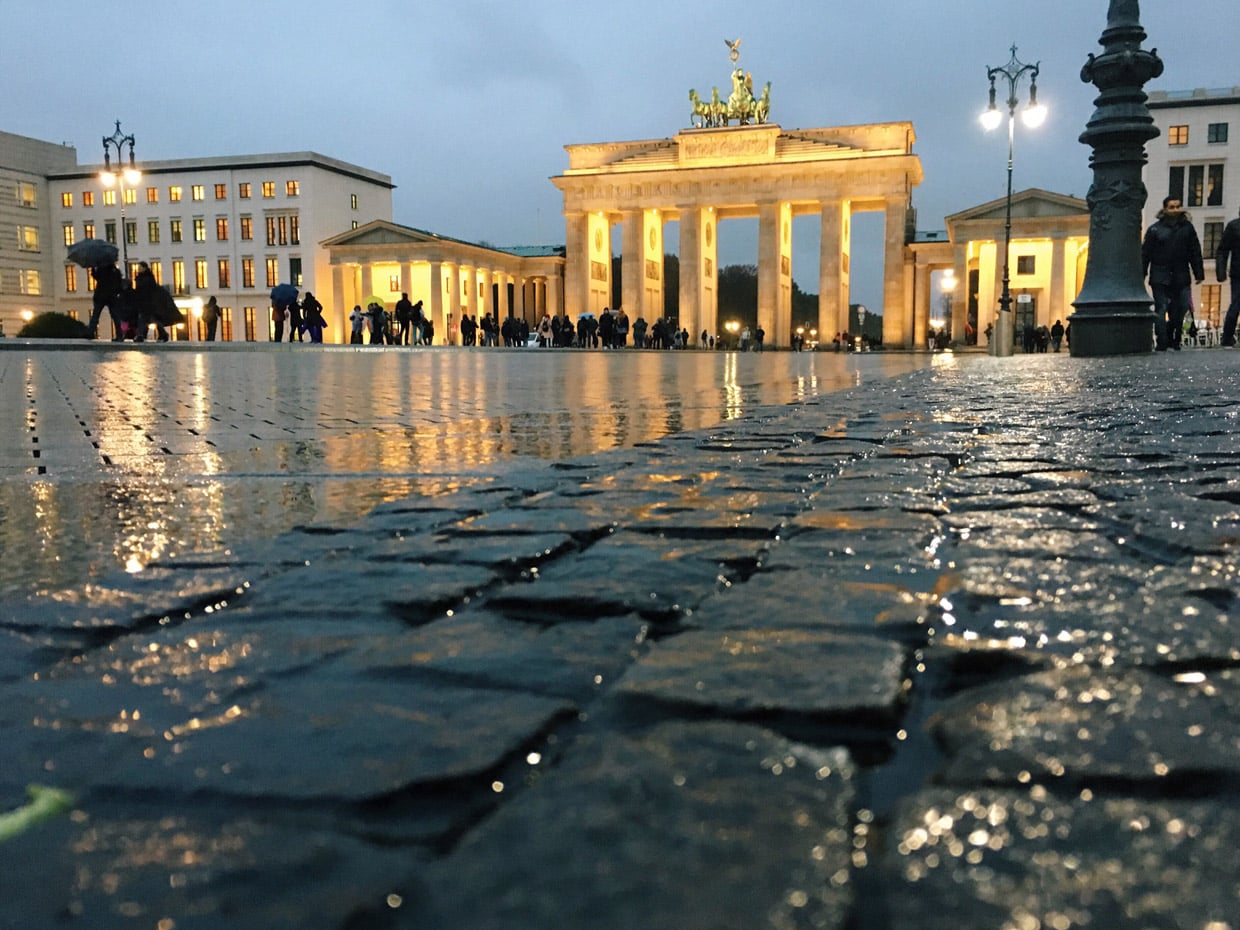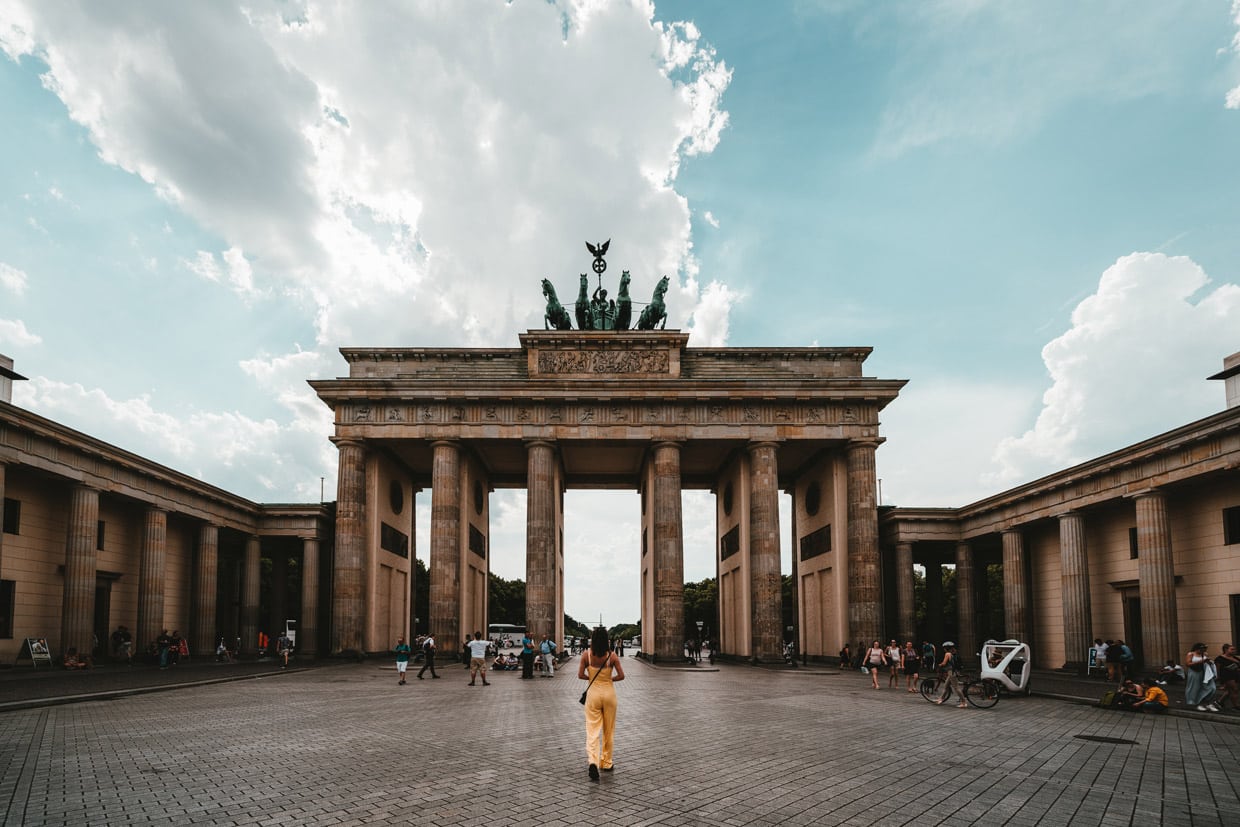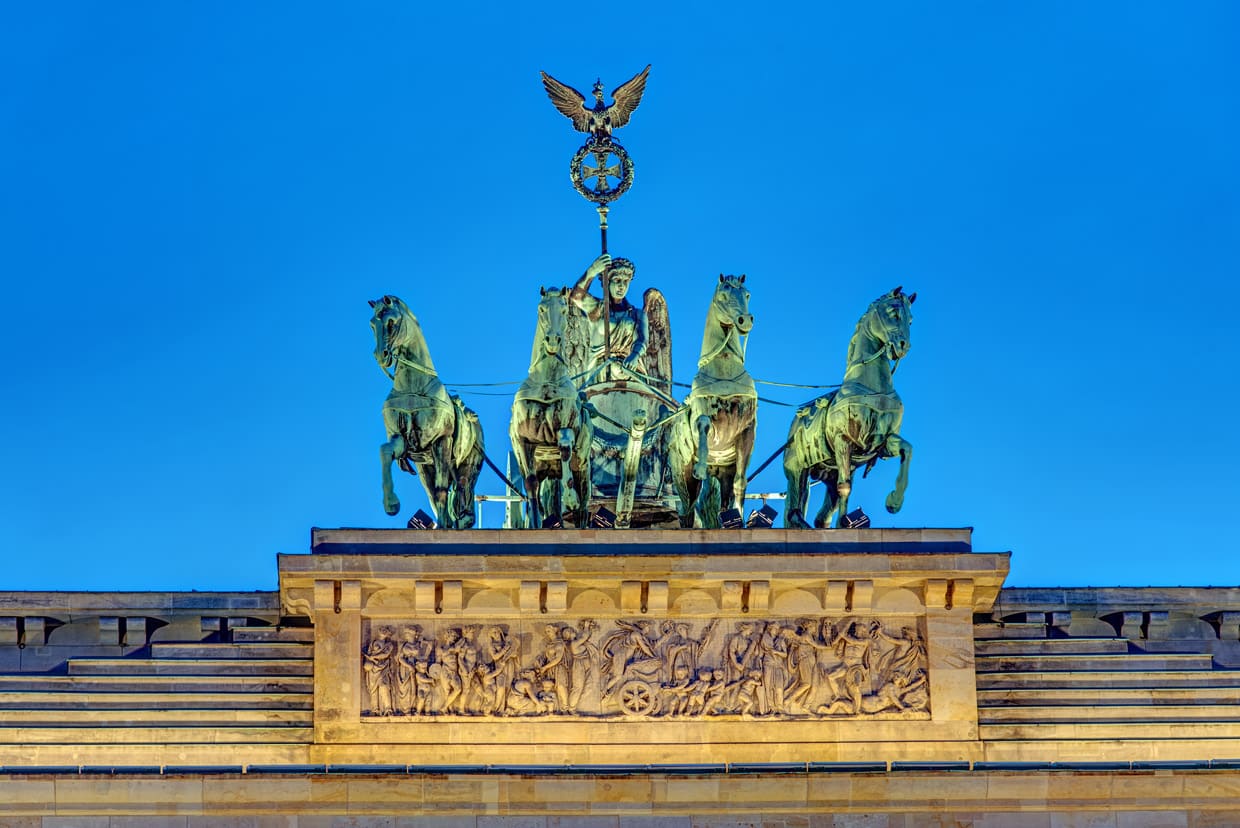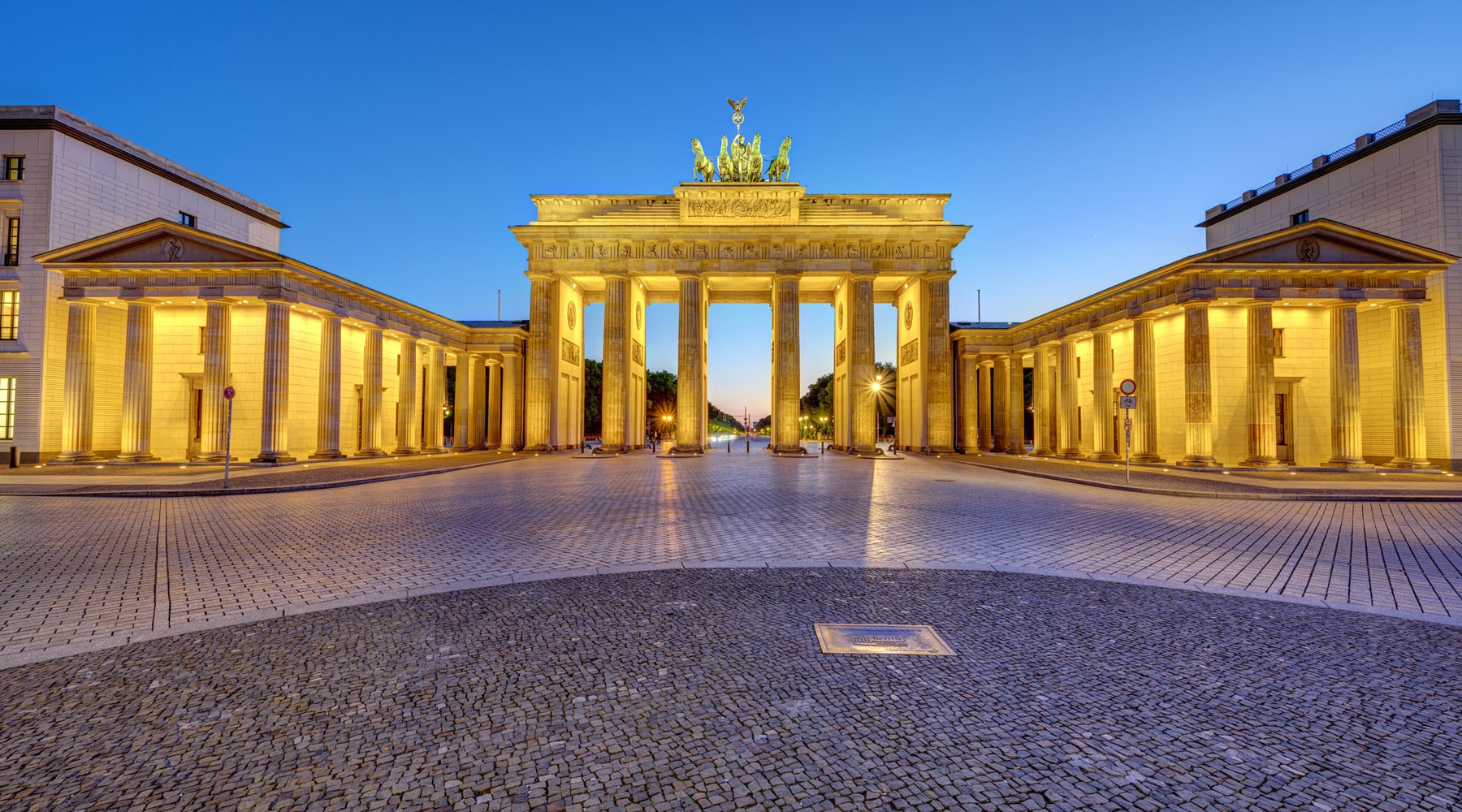The Brandenburg Gate (Brandenburger Tor) stands as Berlin’s most iconic monument—a neoclassical triumphal arch that has witnessed the rise and fall of empires, the scars of war, and the joy of reunification. As of 2025, it remains a powerful symbol of Germany’s turbulent past and hopeful future, drawing millions of visitors each year.
A Glorious Past: From Royal Entrance to National Icon
Commissioned by King Frederick William II of Prussia, the Brandenburg Gate was constructed between 1788 and 1791. Designed by Carl Gotthard Langhans, the gate was inspired by the Propylaea of the Athenian Acropolis, embodying the neoclassical architectural style. The structure features twelve Doric columns, forming five passageways, with the central one originally reserved for royalty.
In 1793, the gate was crowned with the Quadriga, a chariot drawn by four horses, sculpted by Johann Gottfried Schadow. This bronze statue symbolizes victory and was once taken to Paris by Napoleon in 1806, only to be returned to Berlin in 1814 after his defeat.
A Witness to History: War, Division, and Reunification
Throughout its existence, the Brandenburg Gate has been a silent witness to significant historical events:
- Napoleonic Wars: Seized by Napoleon’s troops in 1806, the Quadriga was taken to Paris as a trophy.
- World War II: The gate suffered considerable damage during the war but remained standing amidst the ruins of Berlin.
- Cold War: Situated in the no-man’s-land just behind the Berlin Wall, the gate became a symbol of divided Germany.
- Reunification: On December 22, 1989, after the fall of the Berlin Wall, the Brandenburg Gate was reopened, symbolizing the reunification of East and West Germany.

Architectural Marvel: Design and Dimensions
The Brandenburg Gate stands at 26 meters high, 65.5 meters wide, and 11 meters deep. Its design includes:
- Doric Columns: Twelve columns (six on each side) create five passageways.
- Quadriga: The chariot statue atop the gate faces east, towards the city center.
- Reliefs and Sculptures: Depictions of Roman gods and heroes adorn the gate, emphasizing themes of peace and victory.
Events and Celebrations: A Hub of Activity
The Brandenburg Gate is not only a historical monument but also a central venue for various events:
New Year’s Eve Celebrations
Every December 31st, the area around the gate hosts one of the world’s largest New Year’s Eve parties, attracting hundreds of thousands of revelers. The event features live music, fireworks, and a festive atmosphere.
Festival of Lights
Each October, the gate is illuminated as part of Berlin’s Festival of Lights, transforming the city into a vibrant display of art and color.
Visiting the Brandenburg Gate: Tips for Travelers
Located at Pariser Platz in the heart of Berlin, the Brandenburg Gate is easily accessible:
- Public Transport: The nearest U-Bahn station is Brandenburger Tor (U55 line).
- Admission: The gate is open to the public 24/7 with no entrance fee.
- Best Time to Visit: Early morning or late evening offers fewer crowds and stunning lighting for photography.
Nearby Attractions: Exploring Berlin’s Historic Core
Visiting the Brandenburg Gate places you in the heart of Berlin’s most historically rich and visually stunning district. Within a short walking distance, you’ll find:
| Attraction | Description |
|---|---|
| Reichstag Building | Germany’s parliament with a glass dome offering panoramic views. |
| Memorial to the Murdered Jews of Europe | A powerful Holocaust memorial featuring 2,711 concrete slabs. |
| Unter den Linden | Berlin’s grand boulevard lined with historic buildings and museums. |
| Tiergarten Park | A vast urban park perfect for leisurely walks and picnics. |
| Potsdamer Platz | A bustling square blending modern architecture with post-Cold War revival. |

Cultural Significance and Symbolism
The Brandenburg Gate has evolved far beyond its origins as a royal entrance. Today, it serves as a global symbol of peace, unity, and resilience. From Cold War protests to global celebrations, it continues to inspire:
- Protests and Political Movements: A favored site for peaceful demonstrations and international gatherings.
- Artistic Inspiration: Frequently depicted in paintings, films, and literature representing Berlin’s spirit.
- Diplomatic Symbol: Often used in state visits and speeches, symbolizing Germany’s role on the global stage.
Photography Tips: Capturing the Perfect Shot
To truly capture the essence of the Brandenburg Gate, follow these tips:
- Golden Hour Magic: Visit during sunrise or sunset for warm, soft lighting.
- Symmetry Shots: Position yourself centrally in Pariser Platz for a symmetrical frame.
- Night Photography: The gate is beautifully lit at night—ideal for long exposure shots.
- Event Coverage: If visiting during a festival, use a wide-angle lens to capture the atmosphere and crowds.
Where to Stay Near Brandenburg Gate
Staying close to the gate ensures easy access to many of Berlin’s top attractions. Recommended nearby hotels include:
| Hotel Name | Star Rating | Key Features |
|---|---|---|
| Hotel Adlon Kempinski | ★★★★★ | Historic luxury, spa, and fine dining with gate views. |
| NH Collection Berlin Mitte | ★★★★ | Stylish modern hotel close to public transport and sites. |
| Meliá Berlin | ★★★★ | Elegant riverside hotel with excellent amenities. |
Practical Information
| Feature | Details |
|---|---|
| Location | Pariser Platz, 10117 Berlin, Germany |
| Nearest Transport | U-Bahn: Brandenburger Tor (U55), S-Bahn: Unter den Linden |
| Admission Fee | Free |
| Opening Hours | Open 24/7 |
| Accessibility | Wheelchair-accessible, well-lit paths, and benches |

Final Thoughts: Why You Must Visit the Brandenburg Gate
The Brandenburg Gate is more than a monument—it’s a living testament to the resilience and unity of the German people. Whether you’re a history buff, an architecture lover, or a casual traveler, this iconic landmark will leave a lasting impression.
From awe-inspiring architecture to its powerful history and central role in Berlin’s identity, the Brandenburg Gate stands as a must-see destination on any German itinerary.
